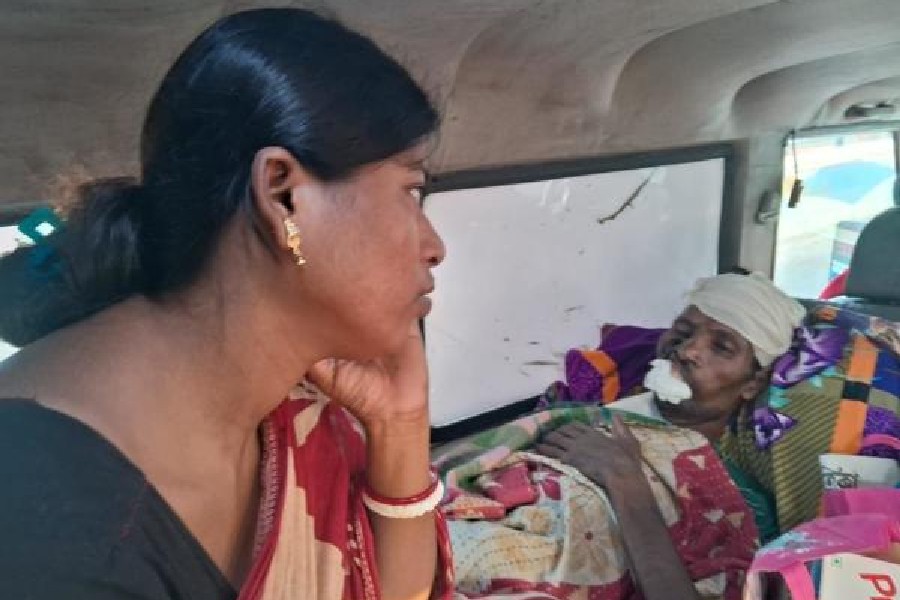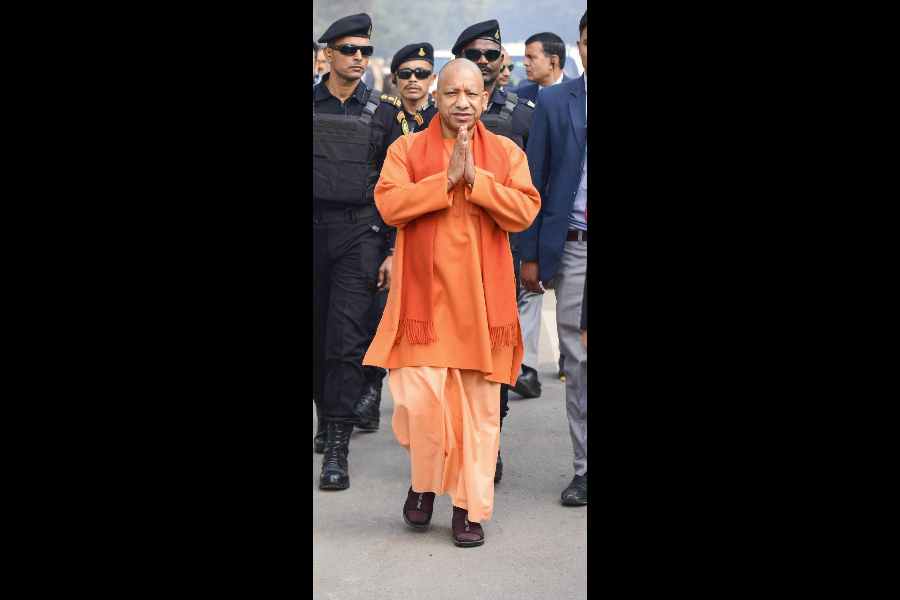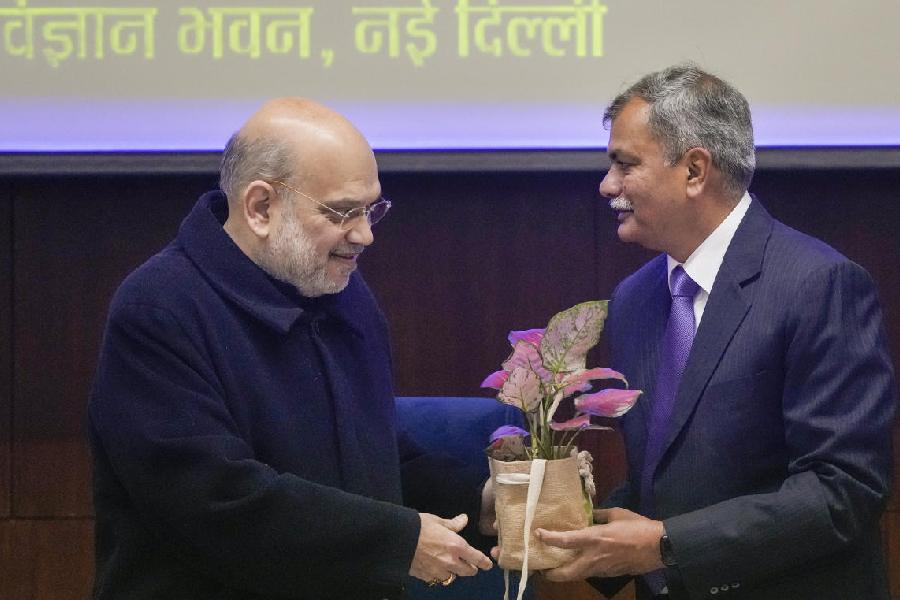A fisherman from the Sunderbans who escaped from the jaws of a Bengal tiger, went home on Saturday after spending several months at SSKM Hospital.
The painful bite of everyday reality awaits Haripada Das in his village in Kultali, South 24-Parganas.
Das, 35, would not be able to work at least for several months, if at all. His wife, Anita, will have to spend time at home nursing him.
“How will we run our household without any help is the biggest question. I don’t know the answer. I am taking my husband home alive and that is the only thing I know right now,” Anita told The Telegraph on her way to Kultali from Calcutta in an ambulance on Saturday.
“He is unable to talk properly because his face was mauled. He also suffered severe injuries in the chest. Unable to stand or sit on his own, my husband can only consume liquid food,” said Anita.
A hospital official said Das would have to be at SSKM for a follow-up after a week.
The Telegraph had reported in December that Das and another tiger attack victim in the Sunderbans, Sukdeb Sapui, 54, were getting treated at two government medical colleges in Calcutta.
The tiger attacked Das on July 3, 2024, while he was catching crabs in the Jharkhali area of the Sunderbans.
The boat had entered a creek and Haripada was standing on it when the tiger pounced on him, grabbing his head and face.
He fought the tiger valiantly and those accompanying him started shouting and hit the animal with oars. The tiger fled.
On July 4, he was admitted to the trauma care unit of SSKM Hospital. He was treated for two months at the unit and then shifted to the general ward.
Portions of his nose and gums were bitten off and he had a feeding tube inserted into his mouth. Now the tube has been removed but the deep injury marks are still there.
The couple were married in 2015 and has a son Madhusudan, 10, who studies in a school in Kultali.
“My husband used to go fishing and catch crab regularly in the forest. This is the first time he encountered a tiger,” said Anita. He would earn about ₹5,000 every week on average, said Anita.
“We had small savings. All is now gone in his treatment and running households for the last few months,” she said. “I want to work but then, I have to take care of my husband at home because there is no one else,” she said.
Crab hunting in the Sunderbans is a high-risk yet lucrative activity, with crabs often fetching prices of ₹1,200 to ₹1,500 per kilogram. Many residents are forced into the dangerous trade by economic hardship and dwindling means of livelihood.
The Association for the Protection of Democratic Rights (APDR), a human rights organisation, said they would help the family apply for compensation and a government job for Anita.
The compensation amount is ₹5 lakh for the dead and ₹2 lakh for those critically injured in tiger attacks.
Fishermen entering the forest for fish or crabs need boat licence certificates. So do honey collectors.
“The certificates bear stamps that mention the areas they are not supposed to venture into. Many fishermen violate the order and enter the core areas. This triggers tiger-man conflicts,” a state forest department official said.
“Calcutta High Court, in an order, said compensations should be paid to tiger victims irrespective of whether they were attacked in the core area or outside,” said Mithun Mondal, assistant secretary of the APDR in South 24-Parganas.
“The family has no other means of income now,” he said.
Mondal alleged that when Das was discharged from SSKM, the authorities initially declined to provide an ambulance.
“They did not accept our application. They are poor people and have no means to pay for the ambulance from Calcutta to Kulatali,” he said.
Later in the day, the authorities agreed to provide the ambulance free of charge.
Officials of the state health department and SSKM were not available for comment.
The other tiger victim, Sukdeb Sapui is undergoing treatment at Calcutta National Medical College and Hospital.











